What an amazing few days of learning and collaboration during the inaugural CDISC TMF Interchange last week. Special thanks to the speakers and panelists for their informative and thoughtful comments. If you missed it, here are some key takeaways:
- We’re all in this together!
- Companies large and small are experiencing many of the same challenges within the TMF space.
- Working in conjunction with CDISC, we’re making the Reference Model an industry standard, providing clarity and alignment.
- Standardization Goals
- Organizations like TransCelerate are paving the way for standardization via protocol templates, etc. that can have big impacts on the future of TMF.
- Leverage the TMF Reference Model to build your TMF Index Template and Study Specific TMF Index. The TMF Index is a powerful tool to communicate expectations to internal teams and sponsors. Think about what you can add to your Index for more clarity and transparency. Alignment on expectations = accountability!
- Quality is “The absence of errors that matter”.
- No study is perfect, but you must be prepared to tell the story and what you’ve done to address issues throughout.
- Artificial intelligence (AI)
- AI can’t be verified at this time, as AI is constantly changing/evolving.
- The sponsor is ultimately responsible for the AI being used.
- Currently, human oversight is still needed to ensure completeness.
- Finding ways to leverage AI in meaningful ways continues.
- Data Management content isn’t limited to Zone 10!
- Data management activities can impact documents in Zones: 1 – Trial Management, 2 – Central Trial Documents, 7 – Safety Reporting, 8 – Central and Local Testing, 9 – Third parties, and 11 – Statistics.
- Becoming aware of content created and impacted by each functional area is key in understanding TMF completeness.
- Remote inspections are here to stay.
- We must be prepared to navigate technological difficulties if they arise, while still being responsive to Inspector’s needs and requests.
- Mock inspections are extremely important! They allow teams to practice and be fully prepared for when the real inspection occurs.
- Action Logs and CAPAs
- A well-maintained Action Log can give insight on resolution timelines and issue trends on a study. Additionally, the Action Log shows proof that work is being done on a study, even if the study’s metric does not change.
- Ask the “5 Whys” to determine the root cause of any issue.
- Ensure follow through when a CAPA is created. Identifying and writing the correction is not a final solution. The correction must be implemented on the study, otherwise the CAPA was pointless.
- Resource shifts:
- Understanding generational differences in how our TMF team members work and process information is vital to our team’s success.
- More and more companies are shifting their TMF Operation Model from central filing by CTAs/ TMF Specialist to functional groups for accountability and responsibilities of filing and completeness review.

